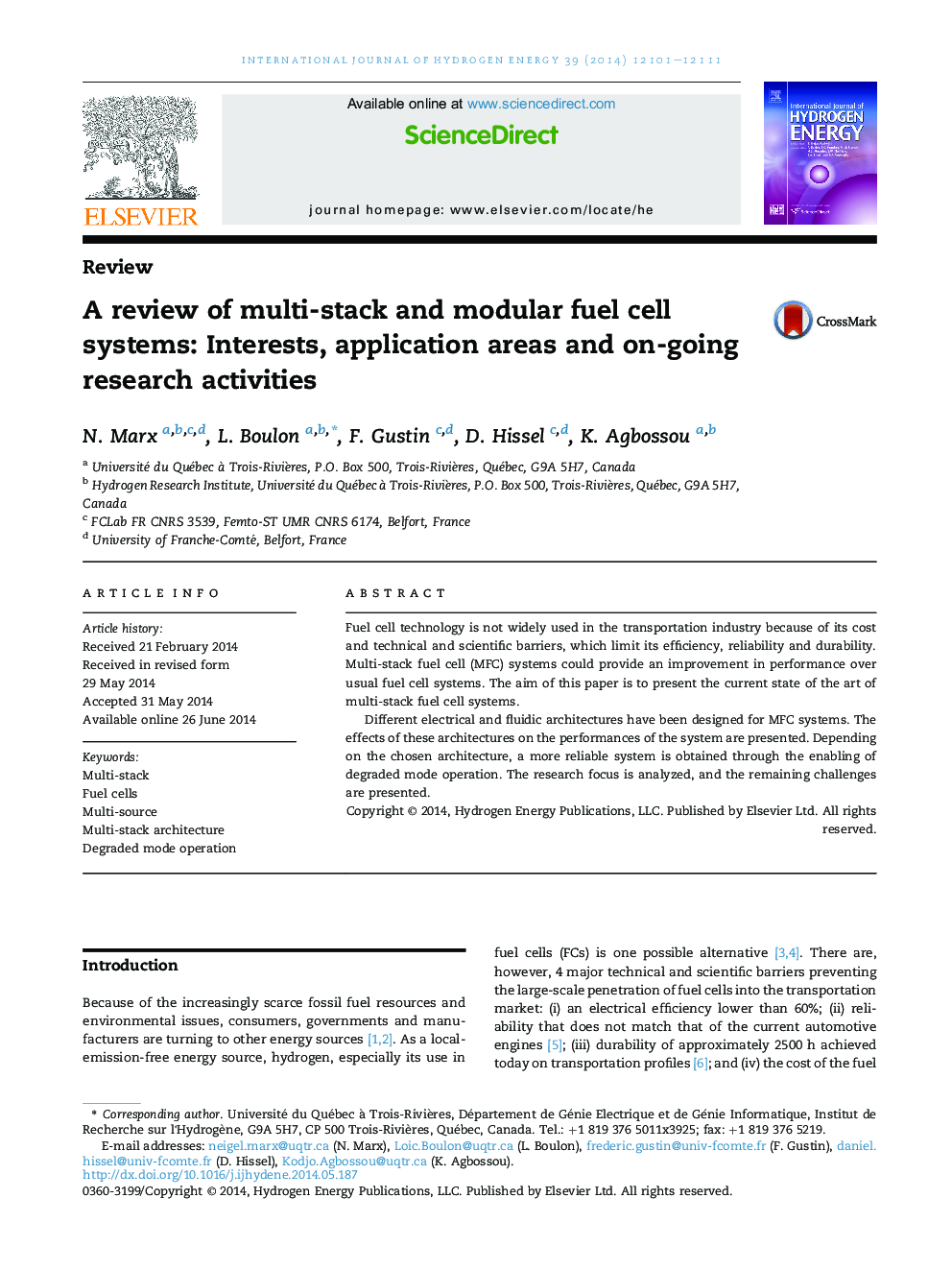| Article ID | Journal | Published Year | Pages | File Type |
|---|---|---|---|---|
| 1273009 | International Journal of Hydrogen Energy | 2014 | 11 Pages |
•Multi-stack systems offer interests for efficiency and reliability improvements.•Different electrical, fluidic and thermal configurations for ancillaries are depicted.•Impacts of multi-stack fuel cell architectures on the performances are detailed.•DC–DC converter architecture for multi-stack systems are compared.•Remaining challenges in the investigation of MFC system are presented.
Fuel cell technology is not widely used in the transportation industry because of its cost and technical and scientific barriers, which limit its efficiency, reliability and durability. Multi-stack fuel cell (MFC) systems could provide an improvement in performance over usual fuel cell systems. The aim of this paper is to present the current state of the art of multi-stack fuel cell systems.Different electrical and fluidic architectures have been designed for MFC systems. The effects of these architectures on the performances of the system are presented. Depending on the chosen architecture, a more reliable system is obtained through the enabling of degraded mode operation. The research focus is analyzed, and the remaining challenges are presented.
